About the Team
Research Group 3.1.5 Health and quality of life in a green and sustainable environment, Joint effects of exposures to natural and built environments – informing healthy and sustainable urban development
Angel M. Dzhambov (head and lead researcher)
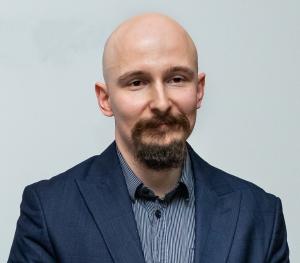
Assoc. Prof. Angel M. Dzhambov, MD, PhD, DSc
Research Institute at Medical University of Plovdiv, Bulgaria
Dr. Dzhambov graduated in medicine from the Medical University – Plovdiv and has obtained specialities in general hygiene (2020) and environmental hygiene (2023), and a postgraduate qualification in the field of mental health (2020). He holds a PhD in hygiene (2017) and DSc in psychiatry (2019). Since 2022, he has been an Associate Professor at the Department of Hygiene at the Medical University - Plovdiv, and since 2024 he is an Associate Professor at the Research Institute at MU-Plovdiv and head of the Environmental Health Division. Since 2023 he has been a Leading Researcher (R4) and Head of Research Group “Health and Quality of Life in a Green and Sustainable Environment”, under the Strategic Research and Innovation Program for development of MU - Plovdiv (SRIPD-MUP). In the period 2020-2024, he has been a researcher at the Technical University – Graz, Austria.
Dr. Dzhambov has scientific interests in and conducts research in Bulgaria and abroad on the influence of the natural environment, transport noise, and air pollution on mental health and chronic non-communicable diseases. He has published more than 100 publications in journals with an impact factor and more than 5000 citations in foreign journals. He leads/participates in several national and international projects, incl. under the Horizon programme, focused on the planning of a healthy, green and sustainable urban environment. He sits on the editorial boards of several prestigious international journals in the field of environmental health, incl. the flagship journal Environment International. He has peer-reviewed over 600 publications for international journals. In 2017, he received the prestigious Rebecca James Baker Award of the International Society for Environmental Epidemiology (ISEE), in 2019, the Pythagoras Grand Prize of the Ministry of Education and Science of Bulgaria for best young scientist, in 2023, the Pythagoras Prize for an established scientist in the field of life sciences and medicine, and in 2025 was nominated for the Pythagoras Prize for an established scientist in the field of social sciences and humanities. In 2020 and 2021, he was in the Top 1% of scientists on the Stanford University ranking for influence on world science, and since 2022, he was in the Top 2% for overall contributions to world science.
Mark Nieuwenhuijsen
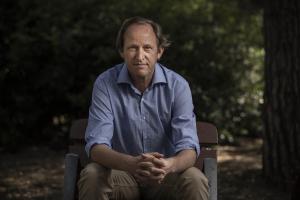
Prof. Mark J. Nieuwenhuijsen, PhD
ISGlobal and Research Institute at Medical University of Plovdiv, Bulgaria
Prof. Nieuwenhuijsen has a PhD in Occupational Hygiene/Epidemiology and BSc/MSc in Environmental Science. He currently works as a Research Professor at ISGlobal, formerly the Centre for Environmental Epidemiology (CREAL), Barcelona; Professorial fellow, Australian Catholic University, Melbourne, Australia; and Director of the Urban Planning, Environment and Health Initiative, and Director of the Air pollution and Urban Environment Programme at Instituto de Salud Global de Barcelona (ISGlobal), Barcelona, Spain. Since 2023, he is a Leading Researcher (R4) at Research Group “Health and Quality of Life in a Green and Sustainable Environment”, Strategic Research and Innovation Program for the Development of MU-Plovdiv (SRIPD-MUP). Prof. Nieuwenhuijsen is Editor in Chief of Environment International.
Prof. Nieuwenhuijsen has led and participated in multiple international projects in the field, including TAPAS (active transportation and health), PHENOTYPE (green space and health), ESCAPE (air pollution and health), HELIX (exposome and health), EXPOsOMICs (exposome and health), PASTA (active transportation and health), iMAP (Urban environment and cognition), BlueHealth (Bluespace and health), Lifecycle (Birth cohorts) and CitiesHealth (Citizen science and health) studies. In 2018, he was awarded the ISEE John Goldsmith Award for Outstanding Contributions to Environmental Epidemiology. He is among the 1% most cited scientists in the world. He is an authority in Europe on environmental health impact assessment studies and engaging local authorities in the discourse on healthy urban planning. He has more than 600 publications, h-index of over 100, and over 41 000 citations in Scopus/Web of Science.
Marco Helbich
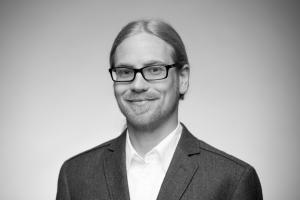
Assoc. Prof. Marco Helbich, PhD
University of Utrecht, The Netherlands and Research Institute at Medical University of Plovdiv, Bulgaria
Dr. Helbich has a background in geographic information science and human geography, focusing on health and transport geography. His prime research interest is understanding how urban areas influence human health. He aspires to decode the external exposome and realize healthy cities through understanding how the environment shapes people’s mental health. Specifically, his aim is to 1) make theoretical contributions to human–environment interactions where people’s daily mobility and their residential life-course are central, 2) develop data-driven solutions to reduce environmental stressors, and 3) underpin evidence-based policies. Dr. Helbich obtained his Ph.D. in 2009 at the University of Vienna and was awarded the venia legendi in human geography at Heidelberg University in 2015. Since 2017, he is an Associate Professor at Utrecht University, The Netherlands, and since 2023, he is a Leading Researcher (R4) at Research Group “Health and Quality of Life in a Green and Sustainable Environment”, Strategic Research and Innovation Program for the Development of MU-Plovdiv (SRIPD-MUP). He serves as editor of ‘Health & Place’ and ‘Journal of Transport and Land Use’. His work has been published in numerous peer-reviewed articles. ORCID
Iana Markevych
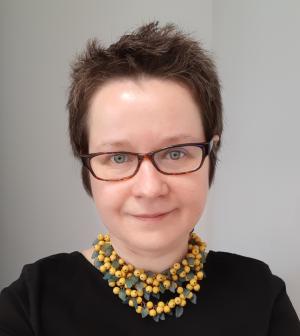
Assoc. Prof. Dr. hab. Iana Markevych, PhD
Jagiellonian University, Poland and Research Institute at Medical University of Plovdiv, Bulgaria
Dr hab. Iana Markevych is an Associate Professor at the Institute of Psychology, Jagiellonian University, Krakow, Poland. She is an ecologist (MSc) and environmental epidemiologist (MSc) by training. Since 2015, she holds a PhD degree in human biology from the Ludwig Maximilian University of Munich, Germany, for which she was granted an award for the best PhD dissertation in Epidemiology from the German Society for Medical Informatics, Biometry and Epidemiology. In 2022, she received a habilitation in biology from the Jagiellonian University and in 2024, she was granted a position of an Associate Professor. Before she came to Krakow in 2019, Iana Markevych had been working at the Helmholtz Zentrum München and at the Ludwig Maximilian University of Munich, Germany, since 2012, where she was part of the large EU-funded projects ESCAPE, TRANSPHORM, and ALEC. She is a co-principal investigator of the Polish FNP-funded “NeuroSmog: Determining the Impact of Air Pollution on the Developing Brain” project and recently received funding and became sole principal investigator of her Polish NCN-funded SONATA BIS “Nature, Pollution, and Sleep” (NaPS) project. Since 2023, she is a Leading Researcher (R4) at Research Group “Health and Quality of Life in a Green and Sustainable Environment”, Strategic Research and Innovation Program for the Development of MU-Plovdiv (SRIPD-MUP). The research interests of Iana Markevych lie in the interdisciplinary field of “health and place”. In particular, she investigates influences of exposure to nature and air pollution on cognitive outcomes, on respiratory health, and on allergic health, as well as the underlying mechanisms. She is also interested in technical aspects of data collection, data safety, and data sharing in research. Iana Markevych is an author of over 120 peer-reviewed publications.
Scientific profiles: Google Scholar, Research Gate, ORCID
Donka Dimitrova
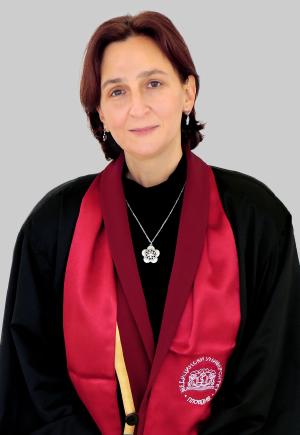
Prof. Donka Dimitrova, MSc, MSSc, MPH, PhD
Research Institute at Medical University of Plovdiv, Bulgaria and Faculty of Public Health at Medical University of Plovdiv
Prof. Dimtirova is a transfessional with a background in Engineering, Sociology and Political Sciences and Public health and Healthcare Management, a specialty in Health Economics and a PhD in Social Medicine and Organization of Healthcare and Pharmacy. She is a Professor of Public health and Vice Dean of Quality and Accreditation at the Faculty of Public Health. She has served as an expert of the National Agency for Health Technology Assessment; and was appointed member of the working groups of the Bulgarian Ministry of Health for the development of National Health Strategy and National Standards for General Practice. She has successfully collaborated on a number of occasions in research on quality of life and health effects of exposure to natural and urban environment in reference to socioeconomic status and demographics and contributed to the development and interpretation of conceptual and statistical models. Her projects and field work include Advisory board member of BIHSENA Project - capacity building project “Bridging Innovations, Health and Societies: Educational capacity building in the Eastern European Neighboring Areas” funded by European Commission and co-funded by ERASMUS+ Program for EU; Expert on the MUP management team of project Idea to impact EIT Health (funded by European Commission HEI Grant agreement No 211253).
Her research interests cover HIA, HTA, evidence-based health politics, health needs assessment, access, equity and equality, disparities in health systems, culture of health organizations.
Scientific metrics in Scopus/WoS: over 75 publications, h-index 24, > 3800 citations
Angel Burov
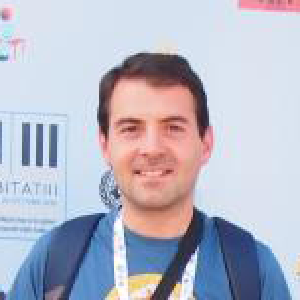
Assoc. Prof. Angel Burov, PhD
University of Architecture, Civil Engineering and Geodesy and Research Institute at Medical University of Plovdiv, Bulgaria
Dr. Burov has BSc (2006) and MSc in Urbanism (2008), and PhD in Territorial, landscape and urban planning (2015), with several short specializations in Ecological Economics (2012), Near Zero Energy Buildings Retrofitting (2018) and Permaculture Design (2021). His research interests, among others, include Sustainable Development and Resilience of Socio-Ecological Systems, Landscape Design and Environmental Impact Assessment, Urban Ecology, and the Anthropocene. He has experience in various academic, professional, and civic studies from research projects (ECHOES, URBiNAT H2020 as well as BNSF project “Development of a Methodology for Assessing Air Quality and its Impact on Human Health in an Urban Environment”), educational and capacity building projects (HURBE, iACT Erasmus+), good practice promotion projects (SCAN - Project with Youth Participation for Urban Regeneration, Share the Neighborhood, Set an Urban Standard for Monitoring and Evaluation of the Urban Environment), as well as plans and expertise related to spatial and urban development, climate adaptation and urban air quality (General and Detailed Master Plans, Integrated Urban Regeneration and Development Plans, Vision for Sofia Monitoring for Urban Environment and GIS themes, Sustainable Energy and Climate Action Plan of Stolichna obshtina, Spatial-based Scenarios for the Introduction of Low-emission Zones in Stolichna Obshtina). He is also ex-deputy president (2012-2021) and president (2021-2023) of the Union of Bulgarian Spatial Planners.
Kostadin Kostadinov
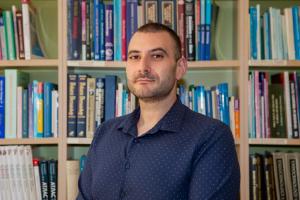
Sr. Asst. Prof. Kostadin R. Kostadinov, MD, PhD
Research Institute at Medical University of Plovdiv, Bulgaria and Faculty of Public Health at Medical University of Plovdiv
Dr. Kostadinov graduated in Medicine in 2017 and in “Health Management and Public Health” in 2018 from the Medical University of Plovdiv. In 2019, he obtained a master’s degree in “Economics and Finance” from the Faculty of Economics at Sofia University “St. Kliment Ohridski.” Since 2019, he has been an assistant, public health fellow, and PhD student at the Department of Social Medicine and Public Health at the Medical University of Plovdiv. In 2025 he was awarded a PhD in social medicine and healthcare and pharmacy organization. His research interests include environmental epidemiology, health economics, public policy evaluation, socio-economic assessment of risk factors, and health and social inequalities related to air pollution. He has experience in various academic, professional, and civic initiatives. He participates in numerous university, national, and international scientific projects such as “Safe4Child,” “Screen4Care,” “AFFIRMO,” and “Well@School.” He is a member of the non-governmental organization “Air for Health – Doctor Network,” through which he actively participates in municipal and national meetings regarding policies to improve air quality. Since 2024, he has been selected as Bulgaria’s ambassador in the OpenAQ training program for air quality leaders in low- and middle-income countries.
